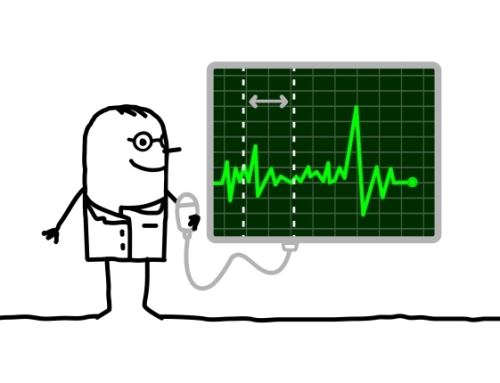In this article, I discuss what it means to forgive and various factors to consider in deciding whether to forgive someone.
Our culture has strong norms encouraging us to forgive those who have wronged us. These norms garner much of their impetus from various well-known statements on the subject. “To err is human, to forgive divine” is one of the most well-known quotations in history. Religious teachings make many references to forgiveness. Among them is the story of Jesus, who replied when asked how often you should forgive someone, “not seven times but seventy times seven times”. Social norms in many cultures dictate that a person should forgive someone in response to an apology from the person who transgressed against them.
So there is a lot of pressure on people to forgive those who have hurt them. Apart from norms and religious statements mandating that we forgive, does it make sense for you to forgive someone who has hurt you? If so, what considerations should you take into account in deciding whether to forgive someone? And, if you decide that it is reasonable to forgive a particular person who has wronged you or everyone who has done so, how do you forgive them? I will discuss these issues in the following sections. As a psychologist, my focus will be on how deciding whether to forgive and how to forgive is likely to impact on your emotional well-being.
Factors to consider in deciding whether to forgive someone
These include:
(1) The severity of the harm—You may consider it reasonable to forgive up to a point. After the size of offense reaches a certain threshold, you may decide that you cannot forgive a person;
(2) Whether the offending person is remorseful and wants forgiveness—It is easier to forgive someone who apologizes sincerely and tries to make amends compared with someone who expresses little remorse and therefore does not believe there is anything they did which needs to be forgiven;
(3) Whether there are negative consequences of forgiving or not forgiving—Some people consider being forgiven a green light to repeat their harmful behaviour toward you at a later date. A prototypical example is the ‘cycle of abuse’ in which the spouse who perpetrates abuse toward their partner apologizes profusely and pleads to be forgiven. If the abused partner does indeed forgive the other, things settle down during this ‘honeymoon’ phase of the cycle until the ‘tension buildup’ and ‘abuse’ stages predictably ensue. On the other hand, not forgiving can also sometimes bring negative consequences to the victim such as being ostracized by one’s family or social group for not forgiving a member of their family or group;
(4) Religious, cultural or value considerations regarding whether you should forgive—The previous reference I made to Jesus encouraging people to forgive is far from an isolated one. While hanging on the cross on the verge of death, he pleads to God, “Father, forgive them, for they know not what they do.” Forgiveness is also featured prominently in the Lord’s Prayer with the line, “…and forgive us our trespasses as we forgive those who trespass against us.” Much as certain religions promote the virtues of forgiveness to their members, if you belong to cultures with norms or forgiveness or had values instilled in you which encourage you to forgive you will be more inclined to forgive than another person without these religious, cultural or value influences;
(5) The impact of the decision whether to forgive on your emotional well-being–Many people, including me, view the decision to forgive as strongly influenced by how this decision will affect the emotional well-being of the person who makes the decision. In some instances, not forgiving someone constitutes setting boundaries to let that person know you are a person who rightfully demands respect. As such, not forgiving may enhance one’s well-being including your self-esteem. In other instances, not forgiving may be accompanied by the victim ruminating regularly on anger and resentment. In these cases, forgiving may be a decision for the victim to consider to help improve their emotional well-being. As I discuss in the following section, forgiving in such instances does not need to entail telling the perpetrator that they are forgiven.
If you decide it is right to forgive someone, how do you do it?
Just as there are many factors to consider in deciding whether to forgive someone, there are several ways of forgiving if you decide it is the right thing to do in a given case. These include:
(1) Communicating to the transgressor that you forgive them—This option is more likely to be considered if the offending party asks for forgiveness and if the perpetrator and victim have ongoing contact with each other;
(2) Communicating forgiveness by various modes—You can forgive someone by telling them face-to-face or over the phone or can do it in writing such as with a letter or note as well as with email and text messages. Which mode you choose often depends on your skill and comfort level. For example, if you express yourself well in writing or are concerned you will be unable to communicate effectively face-to-face or over the phone, you may prefer to use the written mode;
(3) Forgiving someone without telling them you are doing so—It may surprise some people that you can forgive someone without communicating this to them.
Factors encouraging this mode of forgiveness include:
a) Being unable to communicate with the transgressor for reasons such as their being dead or no longer a part of your life;
b) Having to face possible negative consequences of telling them you forgive them such as their angrily or mockingly rejecting the notion that they need to be forgiven;
c) When your need to forgive is driven by a desire to improve your emotional health.
In the latter instance, I have found in my work as a Calgary psychologist and a Cochrane psychologist that Yvonne Dolan’s ‘healing letters’ technique is beneficial in helping people to lessen rumination on anger and resentment toward the transgressor. Healing which leads to forgiveness is facilitated by the victim writing two important letters (which they typically do not send).
In the first letter, the victim writes to the perpetrator to express in detail how their behavior affected him or her. In a follow-up letter, the victim writes in the persona of the perpetrator a letter in response to the first letter. Dolan instructs the victim to make this response letter the ideal response he or she would like to receive to their first letter.
Many of my clients have used this response letter to explore situational factors in the perpetrator’s life to help understand how this person could have chosen to inflict harm on them. This exploration is in the name of understanding rather than condoning the behaviour. Going beyond the belief that the perpetrator’s negative behaviour was motivated simply by their being a bad person to consider circumstances which played a role in their choice can help lessen the victim’s tendency to ruminate on anger and resentment. As such, the forgiveness it facilitates is for the benefit of the victim rather than the perpetrator.
Whether you choose to forgive someone and how to do it is ultimately your personal choice. In making that choice, you may find it helpful to consider the points mentioned in this article.
May you make the right decision whether to forgive and forgive in a way that works for you,
-Dr. Pat





Leave A Comment